 W
WȘtefan Aurel Baciu was a Romanian and Brazilian poet, novelist, publicist and academic who lived his later life in Hawaii. A precocious, award-winning, young author in interwar Romania, he was involved in editing several literary magazines. Attracted into left-wing democratic politics and the Social Democratic Party (PSDR), he camouflaged his views while working for the fascist press under dictatorial regimes, but returned in 1944 to manage the PSDR's Libertatea newspaper. Witnessing first-hand the gradual communist takeover, Baciu managed to have himself assigned to a diplomatic posting in Switzerland, and ultimately defected in 1948. A resident and then citizen of Brazil, and a traveler throughout Latin America, he wrote works in Portuguese, Spanish, English and German, as well as in his native Romanian.
 W
WAnatol E. Baconsky, also known as A. E. Bakonsky, Baconschi or Baconski, was a Romanian modernist poet, essayist, translator, novelist, publisher, literary and art critic. Praised for his late approach to poetry and prose, which transgresses the genres and introduces an aestheticized, original and progressively dark perspective to Romanian literature, he was also criticized for his early commitment to Socialist Realism and communism. Much of his work belongs to the field of travel literature, recording his experiences in the Eastern Bloc, the Far East and Soviet Union, and finally Central Europe. He was also a critically acclaimed translator of foreign works, including the Mahābhārata and poems by Jorge Semprún, Artur Lundkvist and others, the author of world literature anthologies, and the editor of monographs on Romanian and foreign painters.
 W
WNicolae Constantin Batzaria, was a Macedonian-born Aromanian cultural activist, Ottoman statesman and Romanian writer. A schoolteacher and inspector of Aromanian education within Ottoman lands, he established his reputation as a journalist before 1908. During his thirties, he joined the clandestine revolutionary movement known as the Young Turks, serving as its liaison with Aromanian factions. The victorious Young Turk Revolution brought Batzaria to the forefront of Ottoman politics, ensuring him a seat in the Ottoman Senate, and he briefly served as Minister of Public Works under the Three Pashas. He was tasked with several diplomatic missions, including attending the London Conference of 1913, but, alerted by the Three Pashas' World War I alliances and the Young Turks' nationalism, he soon after quit the Ottoman political scene and left into voluntary exile.
 W
WMarthe, Princess Bibesco was a celebrated Romanian-French writer, socialite, style icon and political hostess.
 W
WGeo Bogza was a Romanian avant-garde theorist, poet, and journalist, known for his left-wing and communist political convictions. As a young man in the interwar period, he was known as a rebel and was one of the most influential Romanian Surrealists. Several of his controversial poems twice led to his imprisonment on grounds of obscenity, and saw him partake in the conflict between young and old Romanian writers, as well as in the confrontation between the avant-garde and the far right. At a later stage, Bogza won acclaim for his many and accomplished reportage pieces, being one of the first to cultivate the genre in Romanian literature, and using it as a venue for social criticism.
 W
WDemostene Botez was a Romanian poet and prose writer.
 W
WIordan Chimet was a Romanian poet, children's writer and essayist, whose work was inspired by Surrealism and Onirism. He is also known as a memoirist, theater, art and film critic, book publisher and translator. Chimet, who was an opponent of totalitarianism in general and of the Communist regime in particular, was persecuted by the latter as a dissident, and lived much of his life in obscurity. His experience as an employee of the cooperative society Centrocoop also made him one of the first professional copywriters in his country.
 W
WȘerban Cioculescu was a Romanian literary critic, literary historian and columnist, who held teaching positions in Romanian literature at the University of Iași and the University of Bucharest, as well as membership of the Romanian Academy and chairmanship of its Library. Often described as one of the most representative Romanian critics of the interwar period, he took part in the cultural debates of the age, and, as a left-wing sympathizer who supported secularism, was involved in extended polemics with the traditionalist, far right and nationalist press venues. From early on in his career, Cioculescu was also noted for his selective approach to literary modernism and the avant-garde, preferring to place his cultural references with Neoclassicism.
 W
WN. D. Cocea was a Romanian journalist, novelist, critic and left-wing political activist, known as a major but controversial figure in the field of political satire. The founder of many newspapers and magazines, including Viața Socială, Rampa, Facla and Chemarea, collaborating with writer friends such as Tudor Arghezi, Gala Galaction and Ion Vinea, he fostered and directed the development of early modernist literature in Romania. Cocea later made his name as a republican and anticlerical agitator, was arrested as an instigator during the 1907 peasant revolt, and played a leading role in regrouping the scattered socialist clubs. His allegiances however switched between parties: during World War I, he supported the Entente Powers and, as a personal witness of the October Revolution, the government of Soviet Russia, before returning home as a communist.
 W
WIon Codru-Drăgușanu was an Austro-Hungarian ethnic Romanian prose writer.
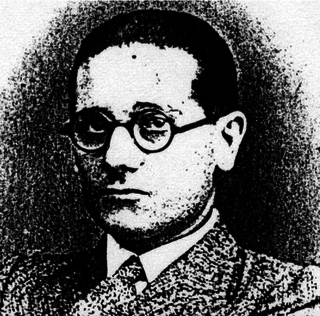 W
WNicolae Crevedia was a Romanian journalist, poet and novelist, father of the writer-politician Eugen Barbu. Of Muntenian peasant roots, which shaped his commitment to agrarian and then far-right politics, as well as his dialectal poetry and humorous prose, he preferred bohemian life to an academic career. As a writer at Gândirea, Crevedia became a follower of Nichifor Crainic, and worked with him on various other press venues, from Calendarul to Sfarmă-Piatră. Turning to fascism, he sympathized with the Iron Guard, and, in the late 1930s, contributed to the press campaigns vilifying ideological enemies, while also putting out novels, reportage pieces, and anthologies. His affair with the Iron Guard muse Marta Rădulescu was at the center of a literary scandal, and was fictionalized by Crevedia in one of his novels.
 W
WVictor Vlad Delamarina was an Austro-Hungarian-born Romanian poet.
 W
WGeorge Ion Diamandy or Diamandi, first name also Gheorghe or Georges, was a Romanian politician, dramatist, social scientist, and archeologist. Although a rich landowner of aristocratic background, he was one of the pioneers of revolutionary socialism in France and Romania, obtaining international fame as founder of L'Ère Nouvelle magazine. He was an early affiliate of the Romanian Social-Democratic Workers' Party, but grew disenchanted with its radical policies, and, as a member of its "generous youth" faction, played a major part in dissolving it. With other members of this reformist group, he joined the National Liberal Party, serving as one of its representatives in Chamber.
 W
WBucura Dumbravă, pen name of Ștefania "Fanny" Szekulics, Szekulicz or Seculici, was a Hungarian-born Romanian genre novelist, cultural promoter, hiker and Theosophist. Her literary work, mainly written in German, covers romantic stories about the legendary feats of hajduk heroes. They brought her commercial success in both German-speaking Europe and Romania, and were prefaced by Queen-consort Elisabeth of Wied.
 W
WMircea Eliade was a Romanian historian of religion, fiction writer, philosopher, and professor at the University of Chicago. He was a leading interpreter of religious experience, who established paradigms in religious studies that persist to this day. His theory that hierophanies form the basis of religion, splitting the human experience of reality into sacred and profane space and time, has proved influential. One of his most instrumental contributions to religious studies was his theory of eternal return, which holds that myths and rituals do not simply commemorate hierophanies, but, at least to the minds of the religious, actually participate in them.
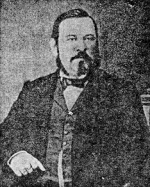 W
WNicolae Filimon was a Wallachian Romanian novelist and short-story writer, remembered as the author of the first Realist novel in Romanian literature, Ciocoii vechi şi noi, which was centered on the self-seeking figure Dinu Păturică. He was also a noted travel writer, folklorist, musician, and the first musical critic in his country.
 W
WBenjamin Fondane or Benjamin Fundoianu was a Romanian and French poet, critic and existentialist philosopher, also noted for his work in film and theater. Known from his Romanian youth as a Symbolist poet and columnist, he alternated Neoromantic and Expressionist themes with echoes from Tudor Arghezi, and dedicated several poetic cycles to the rural life of his native Moldavia. Fondane, who was of Jewish Romanian extraction and a nephew of Jewish intellectuals Elias and Moses Schwartzfeld, participated in both minority secular Jewish culture and mainstream Romanian culture. During and after World War I, he was active as a cultural critic, avant-garde promoter and, with his brother-in-law Armand Pascal, manager of the theatrical troupe Insula.
 W
WGala Galaction was a Romanian Orthodox clergyman and theologian, writer, journalist, left-wing activist, as well as a political figure of the People's Republic of Romania. Contrary to the spirit of the time, he was a promoter of tolerance towards the Jewish minority.
 W
WConstantin Gane was a Romanian novelist, amateur historian, biographer and memoirist. Born into the boyar aristocracy of Western Moldavia, he worked as a lawyer in Bucharest, achieving literary notoriety with his recollections from the Second Balkan War and the Romanian front of World War I. By the 1930s, he was primarily a writer on historical and genealogical topics, famous for his contribution to women's history. An apologist for Romanian conservatism and Junimism, Gane also completed in 1936 a biography of Petre P. Carp. He was editor at Convorbiri Literare and a columnist for Cuvântul, also putting out his own magazine, Sânziana.
 W
WSmaranda Gheorghiu was a Romanian poet, novelist, essayist, playwright, educator, feminist and traveler. She wrote under a number of pseudonyms and is perhaps best known under the moniker Maica Smara, which was given to her by Veronica Micle.
 W
WDinicu Golescu, a member of the Golescu family of boyars, was a Wallachian Romanian man of letters, mostly noted for his travel writings and journalism.
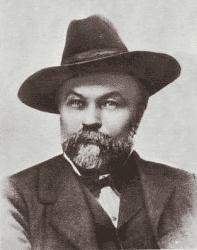 W
WCalistrat Hogaș was a Moldavian, later Romanian prose writer. The son of a Tecuci priest, he studied at Iași University before beginning an over four-decade career as a high school teacher, often at Piatra Neamț. Meanwhile, he made several false starts as a writer before finding a suitable genre, namely stories drawn from his mountain rambles that appeared starting in 1907. He did not manage to collect his works during his lifetime, but these appeared to great success in 1921.
 W
WNicolae Iorga was a Romanian historian, politician, literary critic, memoirist, poet and playwright. Co-founder of the Democratic Nationalist Party (PND), he served as a member of Parliament, President of the Deputies' Assembly and Senate, cabinet minister and briefly (1931–32) as Prime Minister. A child prodigy, polymath and polyglot, Iorga produced an unusually large body of scholarly works, establishing his international reputation as a medievalist, Byzantinist, Latinist, Slavist, art historian and philosopher of history. Holding teaching positions at the University of Bucharest, the University of Paris and several other academic institutions, Iorga was founder of the International Congress of Byzantine Studies and the Institute of South-East European Studies (ISSEE). His activity also included the transformation of Vălenii de Munte town into a cultural and academic center.
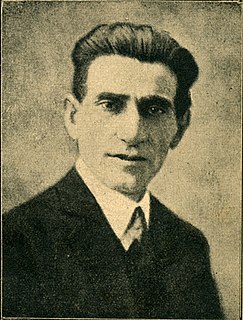 W
WPanait Istrati was a Romanian working class writer, who wrote in French and Romanian, nicknamed The Maxim Gorky of the Balkans. Istrati appears to be the first Romanian author explicitly depicting a homosexual character in his work.
 W
WDora d'Istria, pen-name of duchess Helena Koltsova-Massalskaya, born Elena Ghica (Gjika/Xhika), was a Romanian and Albanian Romantic writer and feminist, most notable for having emblematized the Albanian national cause of the 19th century.
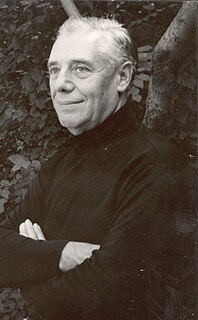 W
WGeorge Ivașcu was a Romanian journalist, literary critic, and communist militant. From beginnings as a University of Iași philologist and librarian, he was drawn into left-wing antifascist politics, while earning accolades as a newspaper editor and foreign-affairs journalist. Openly confronting the Iron Guard and fascism in general, he was persecuted and went into hiding during the first two years of World War II. He reemerged as a pseudonymous correspondent, then editorial secretary, of the magazine Vremea, slowly turning it away from fascism. In parallel, he also contributed to the clandestine left-wing press, preparing for an Allied victory.
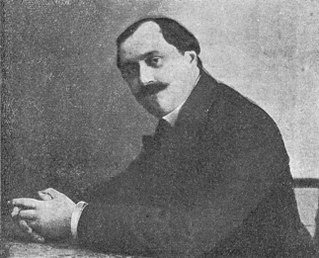 W
WDumitru or Dimitrie Karnabatt was a Romanian poet, art critic and political journalist, one of the minor representatives of Symbolism. He was a disciple of both Alexandru Macedonski and Ștefan Petică, representing the conservative and mystical school of Romanian Symbolism, and a regular contributor to the newspaper Seara. He is also remembered as the husband and, for a while, literary partner of novelist Lucrezzia Karnabatt.
 W
WMihail Kogălniceanu was a Moldavian, later Romanian liberal statesman, lawyer, historian and publicist; he became Prime Minister of Romania on October 11, 1863, after the 1859 union of the Danubian Principalities under Domnitor Alexandru Ioan Cuza, and later served as Foreign Minister under Carol I. He was several times Interior Minister under Cuza and Carol. A polymath, Kogălniceanu was one of the most influential Romanian intellectuals of his generation. Siding with the moderate liberal current for most of his lifetime, he began his political career as a collaborator of Prince Mihail Sturdza, while serving as head of the Iași Theater and issuing several publications together with the poet Vasile Alecsandri and the activist Ion Ghica. After editing the highly influential magazine Dacia Literară and serving as a professor at Academia Mihăileană, Kogălniceanu came into conflict with the authorities over his Romantic nationalist inaugural speech of 1843. He was the ideologue of the abortive 1848 Moldavian revolution, authoring its main document, Dorințele partidei naționale din Moldova.
 W
WHaralamb George Lecca was a Romanian poet, playwright and translator, grandson of artist Constantin Lecca and brother of genealogist Octav-George Lecca, as well as nephew and rival of writer Ion Luca Caragiale. He had an unsettled youth, studying medicine and law for a while, and also reaching a Sub-Officer's rank in the terrestrial army. He debuted in literature under the guidance of Bogdan Petriceicu Hasdeu, who also employed Lecca's services as a medium. His early work was in poetry, often outstandingly macabre, evidencing his familiarity with 19th-century French literature and hinting at a vague affiliation with Symbolism. Briefly a collaborator of Junimea society, then of its dissident wings, Lecca never joined the fledgling Symbolist movement, and spent his later life in relative isolation from all literary circles.
 W
WAlexandru Macedonski was a Romanian poet, novelist, dramatist and literary critic, known especially for having promoted French Symbolism in his native country, and for leading the Romanian Symbolist movement during its early decades. A forerunner of local modernist literature, he is the first local author to have used free verse, and claimed by some to have been the first in modern European literature. Within the framework of Romanian literature, Macedonski is seen by critics as second only to national poet Mihai Eminescu; as leader of a cosmopolitan and aestheticist trend formed around his Literatorul journal, he was diametrically opposed to the inward-looking traditionalism of Eminescu and his school.
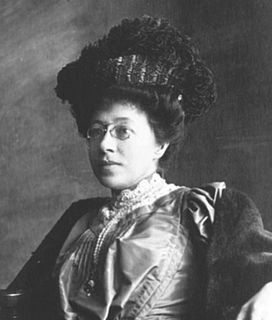 W
WMărgărita Miller-Verghy was a Romanian socialite and author, also known as a schoolteacher, journalist, critic and translator. A cultural animator, she hosted a literary club of Germanophile tendencies during the early part of World War I, and was later involved with Adela Xenopol in setting up feminist cultural venues. Her main contributions to Romanian literature include translations from English literature, a history of feminine writing in the national context, a novella series and an influential work of detective fiction. Many of her other works have been described as mediocre and didactic.
 W
WIoan T. Morar is a Romanian journalist, poet, dramatist, novelist, literary and art critic, diplomat and civil society activist. He is a founding member of the satirical magazine Academia Caţavencu and, since 2004, a senior editor for Cotidianul. An amateur actor in his youth, he was also a member of the comedy troupe Divertis from the mid-1980s to 1996.
 W
WGrigore T. Popa was a Romanian physician and public intellectual. Of lowly peasant origin, he managed to obtain a university education and become a professor at two of his country's leading universities. An anatomist by specialty, Popa worked on popularizing modern science, reforming the medical and higher education systems, and, in war hospitals, as a decorated and publicly acclaimed practitioner. His work in endocrinology and neuromorphology was valued abroad, while at home he helped train a generation of leading doctors.
 W
WNicolae Chiriac Quintescu was a Wallachian, later Romanian philologist, essayist and translator.
 W
WMarta D. Rădulescu was a Romanian poet, journalist, and novelist, made famous in the 1930s for her autofictional work. From an academic family with a penchant for radical politics, she veered into fascist politics, supporting the Iron Guard. The commitment shaped part of her work, which, from a satirical rendition of education in the provinces, becomes a document of interwar radicalization and student political battles. Scandal followed the publication of her early prose works, particularly after claims that they had been largely or entirely written by her father—or, alternatively, by her friend and putative lover N. Crevedia. Her polemic with Crevedia was consumed in the national press and in books written by both participants.
 W
WFrancisc Iosif Rainer was an Austro-Hungarian-born Romanian pathologist, physiologist and anthropologist. From an immigrant family, he earned early recognition for his experimental work in anatomy, and helped reform Romanian medical science. He spent much of his youth training himself in anatomical pathology and the various areas of natural science, gaining direct experience as a microbiologist, surgeon, and military physician. With teaching positions at the University of Iași and the University of Bucharest, where he established specialized sections, Rainer became a noted promoter of science and an innovator in his field. He notably favored and introduced the anatomical study of "functional structures", and was in particular preoccupied with issues pertaining to ontogenesis and kinesiology. An intellectual influence on several generations of doctors, his wife was Marta Trancu-Rainer, Romania's first female surgeon.
 W
WMihai Dumitru Ralea was a Romanian social scientist, cultural journalist, and political figure. He debuted as an affiliate of Poporanism, the left-wing agrarian movement, which he infused with influences from corporatism and Marxism. A distinguished product of French academia, Ralea rejected traditionalism and welcomed cultural modernization, outlining the program for a secular and democratic "peasant state". His ideology blended into his scholarly work, with noted contributions to political sociology, the sociology of culture, and social and national psychology. He was a professor at the University of Iași and, from 1938, the University of Bucharest.
Eugen D. Relgis (backward reading of Eisig D. Sigler; first name also Eugenio, Eugène or Eugene, last name also Siegler or Siegler Watchel; was a Romanian writer, pacifist philosopher and anarchist militant, known as a theorist of humanitarianism. His internationalist dogma, with distinct echoes from Judaism and Jewish ethics, was first shaped during World War I, when Relgis was a conscientious objector. Infused with anarcho-pacifism and socialism, it provided Relgis with an international profile, and earned him the support of pacifists such as Romain Rolland, Stefan Zweig and Albert Einstein. Another, more controversial, aspect of Relgis' philosophy was his support for eugenics, which centered on the compulsory sterilization of "degenerates". The latter proposal was voiced by several of Relgis' essays and sociological tracts.
Alexandru Robot was a Romanian, Moldovan and Soviet poet, also known as a novelist and journalist. First noted as a member of Romanian literary clubs, and committed to modernism and the avant-garde, he developed a poetic style based on borrowings from Symbolist and Expressionist literature. Also deemed a "Hermeticist" for the lexical obscurity in some of his poems, as well as for the similarity between his style and that of Ion Barbu, Robot was in particular noted for his pastorals, where he fused modernist elements into a traditionalist convention.
 W
WRadu D. Rosetti or Rossetti was a Romanian poet, playwright, and short story writer, also distinguished as an attorney and activist. The son of playwright-aristocrat Dimitrie Rosetti-Max and nephew of Titu Maiorescu, he had a troubled and rebellious youth, but kept company with senior literary figures such as Ion Luca Caragiale. Graduating from the University of Bucharest at age 26, he was already a successful poet of neoromantic sensibilities, a published translator of plays and novels, and also famous for his unhappy marriage to the literary critic Elena Bacaloglu. He then switched to writing social-themed plays and stories of his professional life, earning a high profile as a defender of left-wing causes. From ca. 1913, Rosetti was also the public face of cremation activism, engaged in public polemics with the Romanian Orthodox Church.
 W
WAlecu Russo, was a Moldavian Romanian writer, literary critic and publicist.
 W
WMihail Sadoveanu was a Romanian novelist, short story writer, journalist and political figure, who twice served as acting head of state for the communist republic. One of the most prolific Romanian-language writers, he is remembered mostly for his historical and adventure novels, as well as for his nature writing. An author whose career spanned five decades, Sadoveanu was an early associate of the traditionalist magazine Sămănătorul, before becoming known as a Realist writer and an adherent to the Poporanist current represented by Viața Românească journal. His books, critically acclaimed for their vision of age-old solitude and natural abundance, are generally set in the historical region of Moldavia, building on themes from Romania's medieval and early modern history. Among them are Neamul Șoimăreștilor, Frații Jderi and Zodia Cancerului. With Venea o moară pe Siret..., Baltagul and some other works of fiction, Sadoveanu extends his fresco to contemporary history and adapts his style to the psychological novel, Naturalism and Social realism.
 W
WAlexandru Sahia was a Romanian journalist and short story writer.
 W
WGheorghe Sion was a Moldavian, later Romanian poet, playwright, translator and memoirist.
 W
WSandu Tudor was a Romanian poet, journalist, theologian and Orthodox monk. Having had an adventurous youth, he first became known in the late 1920s, when he contributed to the modern Orthodox revival, rallying with the journal Gândirea. Although a traditionalist and a critic of materialism, he was closely associated with the modernist scene, and generally supported left-wing causes. Tudor was also a scandal-prone journalist and newspaper owner, who faced accusations of slander and was avoided by his peers.
 W
WNestor Urechia was a Romanian prose writer.
 W
WV. A. Urechia was a Moldavian, later Romanian historian, Romantic author of historical fiction and plays, academic and politician. The author of Romanian history syntheses, a noted bibliographer, heraldist, ethnographer and folklorist, he founded and managed a private school, later holding teaching positions at the University of Iaşi and University of Bucharest. Urechia was also one of the founding members of the Romanian Academy and, as frequent traveler to Spain and fluent speaker of Spanish, a corresponding member of the Royal Spanish Academy. He was the father of satirist Alceu Urechia.
 W
WIosif Vulcan was an ethnic Romanian Austro-Hungarian magazine editor, poet, playwright, novelist and cultural figure. He founded the literary magazine Familia, which he published for four decades.
 W
WNicolae Dimitrie Xenopol was a Romanian politician, diplomat, economist and writer, the younger brother of historian Alexandru Dimitrie Xenopol and, like him, a member of Junimea society. Initially inspired by Junimea leader Titu Maiorescu, he was later a dissident of Junimism, a Positivist and a supporter of literary realism. Politically, Xenopol also moved away from conservatism and was embraced by the liberal current, serving as editor of two liberal newspapers: Românul and Voința Națională. He had a successful career in electoral politics, which began within the National Liberal Party and later saw him joining the Conservative-Democratic Party. In 1912, he was Minister of Commerce, and helped create an Academy of Economic Studies.
 W
WMircea Zaciu was a Romanian critic, literary historian and prose writer.